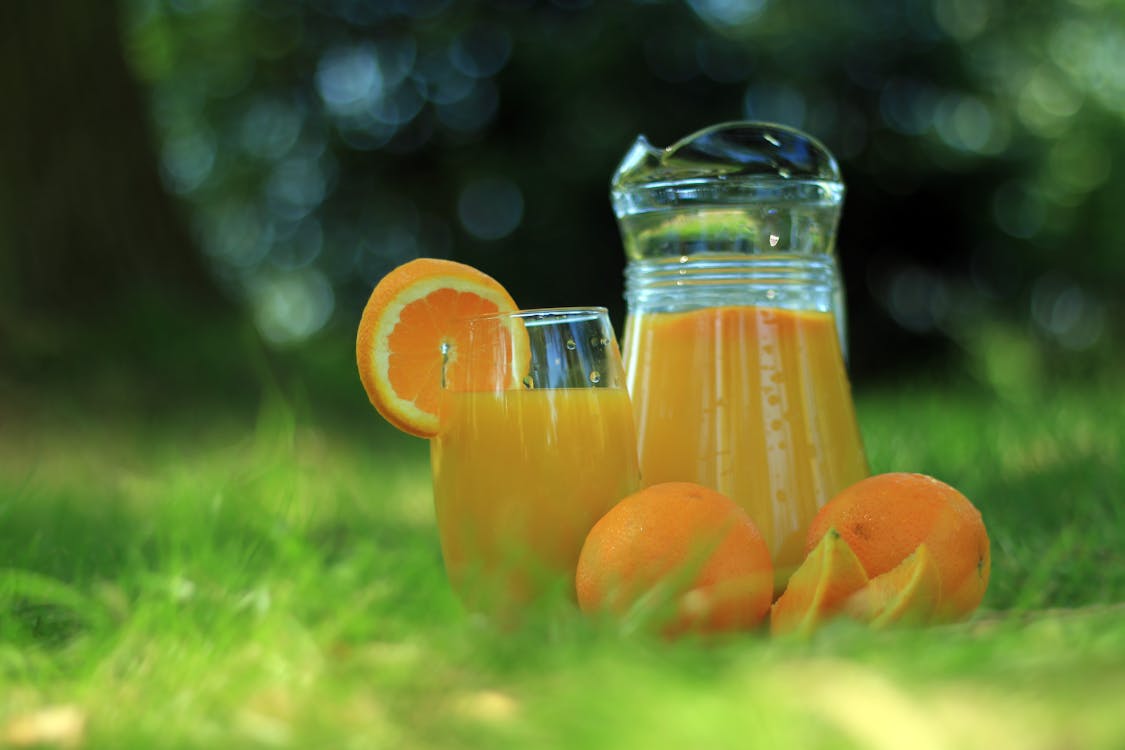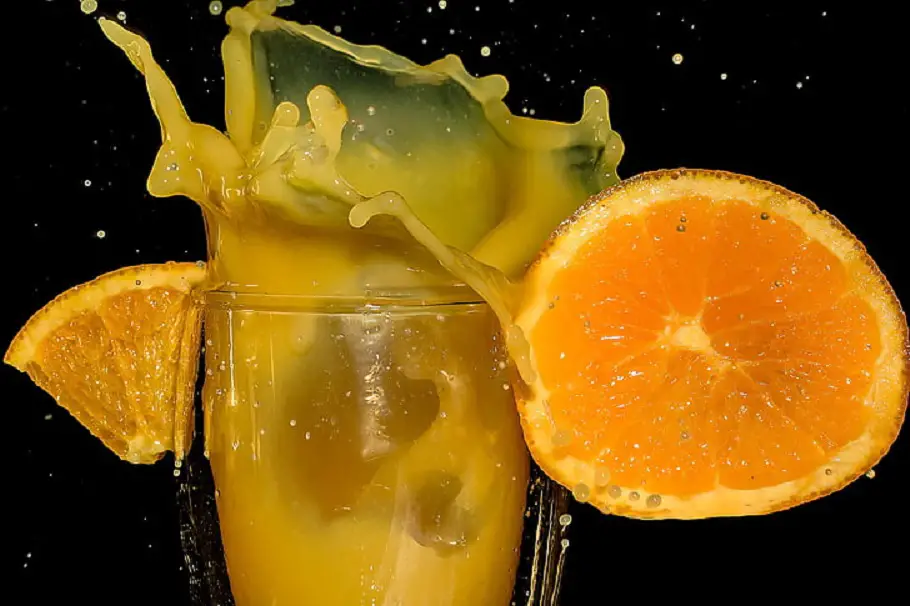Orange juice can go bad in about a week to ten days. Freshly squeezed juice lasts around two to three days.
Store-bought juice lasts longer due to preservatives. Orange juice is a favorite drink for many. Its tangy, refreshing taste makes it a popular choice for breakfast and snacks. But like all foods, it has a shelf life. Understanding how long orange juice stays fresh can help prevent waste and ensure you enjoy it at its best.
Whether it’s freshly squeezed or store-bought, knowing the signs of spoilage is important. This guide will help you understand the factors affecting orange juice’s freshness and how to store it properly. Keep reading to learn more about keeping your orange juice fresh and safe to drink.
Factors Influencing Shelf Life

Orange juice is a popular drink enjoyed by many. But, how long does it take for orange juice to go bad? Several factors influence the shelf life of orange juice. Knowing these can help in ensuring the juice remains safe and fresh for consumption. Let’s explore the key factors affecting the shelf life of orange juice.
Also Read: How Long Does It Take for Scrambled Eggs to Go Bad? Find Out!
Storage Conditions
Storage conditions play a critical role in determining how long orange juice remains fresh. Refrigerated orange juice storage is essential for maintaining its quality. Here are some key points to consider:
- Refrigeration: Always store orange juice in the fridge. This helps in slowing down spoilage.
- Temperature Consistency: Keep the juice at a consistent, cool temperature. Fluctuating temperatures can cause the juice to spoil faster.
- Avoid Direct Sunlight: Light can degrade the quality of the juice. Store it in a dark place.
Let’s compare the shelf life based on storage conditions:
| Storage Condition | Approximate Shelf Life |
|---|---|
| Refrigerated | 7-10 days (opened), 1-2 months (unopened) |
| Room Temperature | 2-3 days (opened), 1-2 weeks (unopened) |
Proper storage ensures the orange juice freshness and prevents orange juice quality deterioration.
Packaging Type
The type of packaging also impacts the shelf life of orange juice. Different packaging types offer varying levels of protection:
- Cartons: These are common and provide good protection. They keep light and air out, preserving freshness.
- Plastic Bottles: These are convenient but not as effective as cartons. They may allow some light to penetrate.
- Glass Bottles: These are the best for maintaining juice quality. They prevent light and air from affecting the juice.
Here is a comparison of the orange juice shelf life based on packaging type:
| Packaging Type | Approximate Shelf Life (Refrigerated) |
|---|---|
| Cartons | 7-10 days (opened), 1-2 months (unopened) |
| Plastic Bottles | 5-7 days (opened), 1 month (unopened) |
| Glass Bottles | 10-14 days (opened), 2-3 months (unopened) |
Understanding the impact of packaging helps in making informed choices about juice preservation tips. Proper packaging can significantly extend the orange juice shelf life.
Signs Of Spoilage

Orange juice is a popular beverage that many people enjoy daily. But like all perishable items, it has a shelf life. Understanding how long orange juice lasts can help ensure you consume it while it’s still fresh. Spoiled juice can be harmful. This post will guide you on the signs of spoilage to look out for in your orange juice.
Visual Changes
Visual inspection is one of the first steps in detecting spoiled orange juice. Fresh orange juice should have a bright, vibrant color. Spoiled juice often shows visible signs of change. Here are some visual indicators to watch for:
- Color change: Fresh juice is usually a bright orange. Spoiled juice may turn a dull or darker color.
- Sediment: Fresh juice is typically clear. If you notice sediment or cloudy appearance, it may be a sign of spoilage.
- Mold: Check for any mold growth around the cap or inside the bottle. Mold is a clear sign that the juice is no longer safe to drink.
In some cases, you might observe bubbles forming inside the juice. This is often due to fermentation, indicating that the juice is turning bad. Always pour the juice into a clear glass to examine it properly. If you see any of these signs, discard the juice immediately.
Smell And Taste

The sense of smell is another effective way to detect spoilage in orange juice. Fresh juice has a sweet, citrusy aroma. Spoiled juice often emits a sour or off-putting smell. If the juice smells strange, it’s best not to drink it.
Taste is another critical factor. Fresh orange juice tastes sweet and tangy. Spoiled juice may taste sour, bitter, or off. If the taste is unpleasant or different from usual, it’s a sign the juice has gone bad.
- Sour smell: Indicates fermentation.
- Off taste: Another clear sign of spoilage.
It is important to trust your senses. When in doubt, it’s safer to throw it out. Consuming spoiled juice can lead to stomach upset and other health issues.
Storage Tips
Orange juice is a popular drink enjoyed by many. But how long does it take for orange juice to go bad? Proper storage can help maintain the freshness of orange juice. Let’s explore some effective storage tips to keep your juice fresh for longer.
Refrigeration Best Practices
Refrigeration is key to extending the shelf life of orange juice. Here are some best practices for keeping your juice fresh in the fridge:
- Keep it cold: Always store orange juice at or below 40°F (4°C).
- Use sealed containers: Store juice in airtight containers to prevent exposure to air.
- Avoid the fridge door: The temperature in the door fluctuates. Store juice on a shelf instead.
Refrigerated orange juice duration varies. Fresh orange juice lasts about 3-5 days, while pasteurized orange juice can last up to 2 weeks. Here is a quick comparison:
| Type of Orange Juice | Shelf Life in the Fridge |
|---|---|
| Fresh Orange Juice | 3-5 days |
| Pasteurized Orange Juice | 10-14 days |
Check for spoilage signs: Always check for signs like an off smell, changes in color, or a sour taste. These indicate expired orange juice.
Freezing Orange Juice
Freezing citrus juice is another effective preservation method. It can extend the shelf life significantly. Here’s how to freeze orange juice:
- Use freezer-safe containers: Choose containers that can withstand freezing temperatures.
- Leave room for expansion: Orange juice expands when frozen. Leave some space at the top of the container.
- Label and date: Always label the containers with the date of freezing.
Frozen orange juice can last up to 3-4 months. Here is a quick guide:
| Storage Method | Shelf Life |
|---|---|
| Freezing | 3-4 months |
To use frozen juice, thaw it in the refrigerator. Avoid thawing at room temperature, as it can affect the freshness and safety of the juice. Following these orange juice storage tips can help maintain the quality and safety of your juice for a longer period.
Health Risks
Orange juice is a delicious and nutritious drink enjoyed by many. But how long does it take for orange juice to go bad? Understanding the health risks associated with spoiled orange juice is crucial for ensuring safety. Let’s explore the factors that affect the shelf life of orange juice and the associated health risks.
Bacterial Growth
Bacteria can grow rapidly in orange juice if it’s not stored properly. This growth can lead to foodborne illnesses. Here are some key points to consider:
- Storage Tips For Orange Juice: Always keep orange juice in the refrigerator.
- Refrigeration Effects On Juice: Refrigeration slows down bacterial growth.
- Orange Juice Shelf Life: Fresh juice lasts 7-10 days in the fridge.
Pasteurized orange juice has a longer shelf life. The pasteurization process kills harmful bacteria. However, it is still important to monitor the juice for any signs of spoilage.
| Type of Orange Juice | Refrigerated Shelf Life |
|---|---|
| Freshly Squeezed | 7-10 Days |
| Pasteurized | 2-3 Weeks |
Look for spoilage signs of orange juice like off smell, color change, or mold. These juice freshness indicators help in determining if the juice is safe to consume.
Consumption Safety
Consuming spoiled orange juice can pose health risks. It’s important to follow food safety guidelines to avoid these risks:
- Microbial Contamination In Juice: Spoiled juice can contain harmful microbes.
- Expiration Date For Orange Juice: Check the expiration date and consume before it passes.
- Citrus Juice Preservation Methods: Use preservation methods to extend shelf life.
Proper storage is key to ensuring the safety of orange juice. Always refrigerate the juice and keep it sealed. This prevents contamination and extends the juice’s shelf life.
Remember to check for spoilage signs regularly. If the juice smells off or tastes strange, it’s better to discard it. Following these guidelines will help keep your orange juice fresh and safe for consumption.
Frequently Asked Questions
How Do You Know When Orange Juice Goes Bad?
Check for sour smell, off taste, or changes in color and texture. Mold or bubbles indicate spoilage.
Can I Drink Orange Juice 2 Weeks After Opening?
It’s generally not recommended to drink orange juice 2 weeks after opening. It may spoil and develop harmful bacteria. Always check the expiration date and smell before consuming.
How Long Can Orange Juice Last Out Of The Fridge?
Orange juice lasts about 2 hours out of the fridge. After that, it can spoil and become unsafe to drink.
What Happens If I Drank Bad Orange Juice?
Drinking bad orange juice can cause food poisoning. Symptoms may include nausea, vomiting, diarrhea, and stomach cramps. Drink water and rest. Seek medical attention if symptoms persist.
Conclusion
Orange juice can spoil quickly if not stored properly. Keep it in the fridge. Check the expiration date. Fresh juice lasts about three days. Store-bought juice lasts longer. Always look for signs of spoilage. Mold, off smell, and taste changes signal bad juice.
Proper storage can extend freshness. Regularly check your juice to avoid drinking spoiled juice. Enjoy your orange juice while it’s fresh and delicious.


